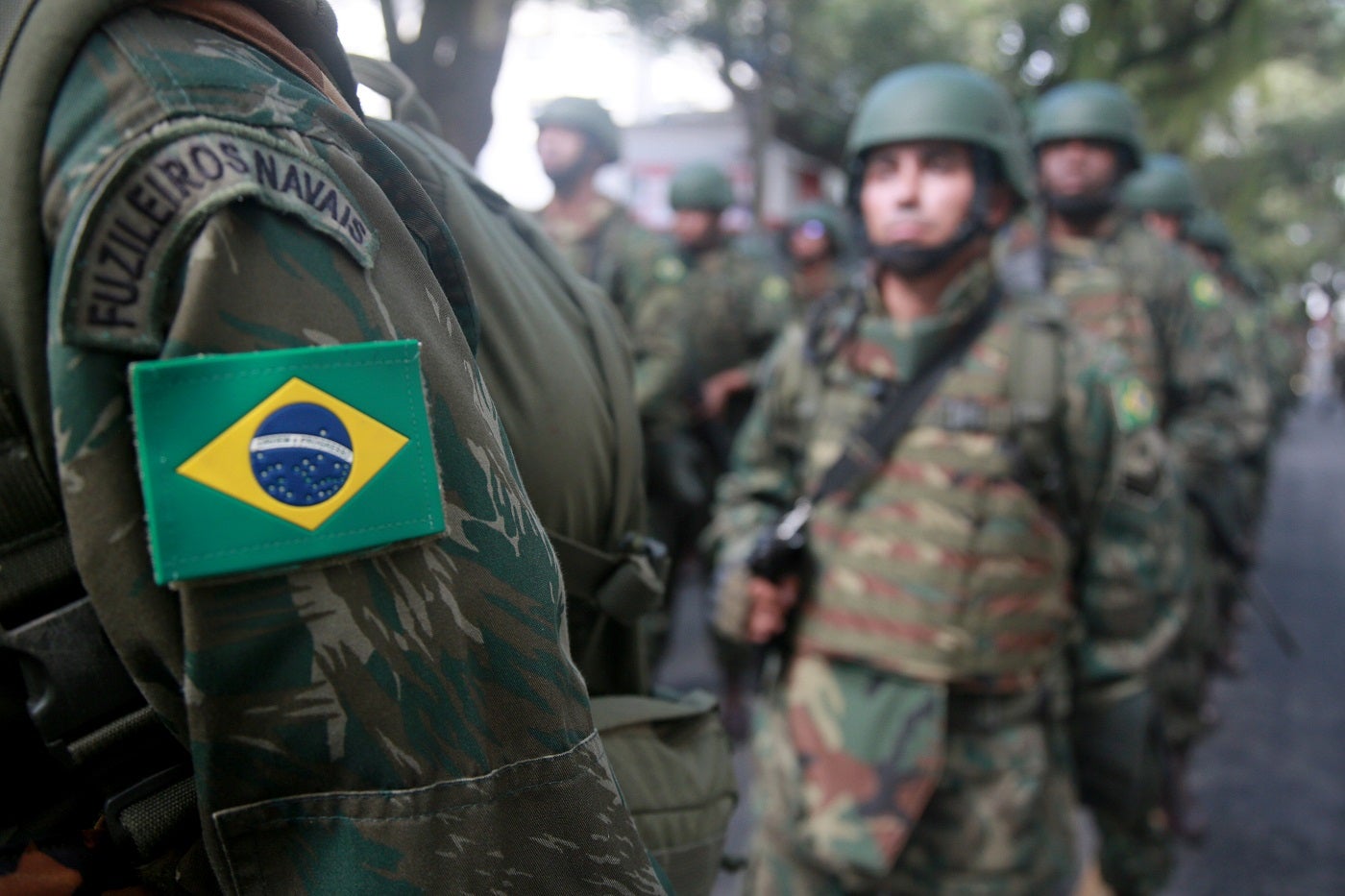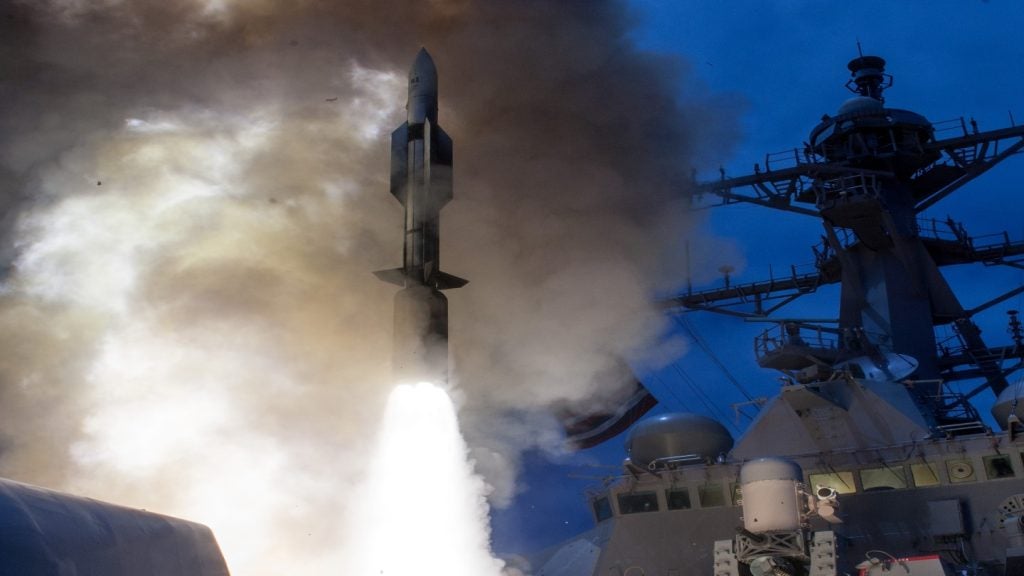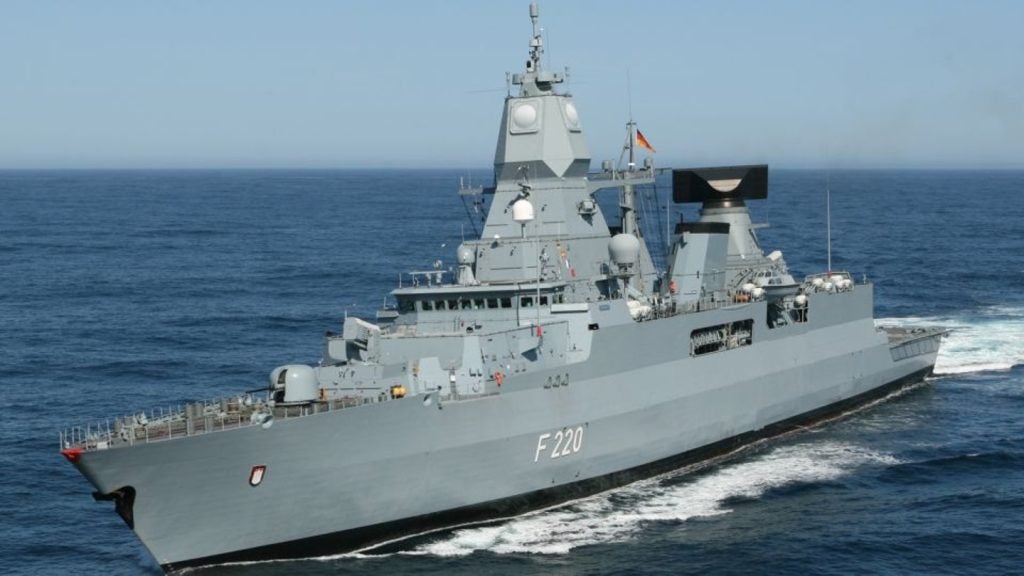
Brazil’s armed forces are undergoing modernisation and increased defence spending as the country implements a new National Strategy for Defence to strengthen Brazil’s defence capabilities, protect its sovereignty, and address internal security challenges.
Brazil’s defence budget is projected to increase steadily over the coming years, reaching $29.9bn in 2028, according to GlobalData’s report on the “Brazil Defence Market 2023-2028“, reflecting its commitment to modernising its armed forces. The government’s focus on internal security issues, including combating drug trafficking, arms smuggling, and organised crime, is a key driver behind the increased defence expenditure.
Major modernisation programmes drive defence spending
Modernisation programs such as the Brazilian Gripen program, VBTP-MR Guarani Project, and submarine development program are among the initiatives that contribute to the rise in defence spending.
The Brazilian Army is actively undertaking various modernisation projects, including acquiring self-propelled howitzers and upgrading armoured vehicles. The Air Force has expanded its order of F-39 E/F Gripen fighter jets, while the Navy has outlined plans to procure patrol vessels, frigates, surveillance systems, logistical support ships, and unmanned aerial vehicles.
These efforts reflect Brazil’s commitment to enhancing its defence capabilities and protecting its borders, including the Amazon rainforest and offshore oil reserves.
Internal issues and the focus on indigenous capabilities
In addition to modernisation, Brazil is focused on reducing its dependency on foreign suppliers and developing indigenous defence capabilities. The country is engaging in joint ventures, strategic partnerships, and collaborations to acquire foreign technology supporting its indigenous weaponry research and development.
Legislation has been passed to promote the formation of strategic defence companies with majority Brazilian ownership, and defence deals include offset obligations and technology transfers.
Brazil’s armed forces also have a long history of contributing to international peacekeeping missions, aiding peacekeeping efforts and promoting stability in conflict zones under the United Nations initiatives.
The new National Strategy for Defense (END) is a comprehensive roadmap to strengthen Brazil’s defence capabilities. It emphasises the importance of protecting Brazil’s sovereignty, territory, and natural resources, particularly in the Amazon region.
The strategy seeks to integrate the operations of the three branches of the armed forces to enhance their effectiveness in preventing hostile forces from accessing Brazil’s borders and sovereign airspace.
Autonomy in defence technologies is another key objective of the END. Brazil aims to reduce its dependence on technology transfers by partnering with national universities and developing advanced technologies in space, cybernetics, and nuclear sectors.
The strategy also highlights Brazil’s alliances and partnerships in the international defence arena, including its alignment with the United States and deepening relations with China. The successful implementation of the END will strengthen Brazil’s defence industry, enhance its operational capabilities, and position the country as a global power.








